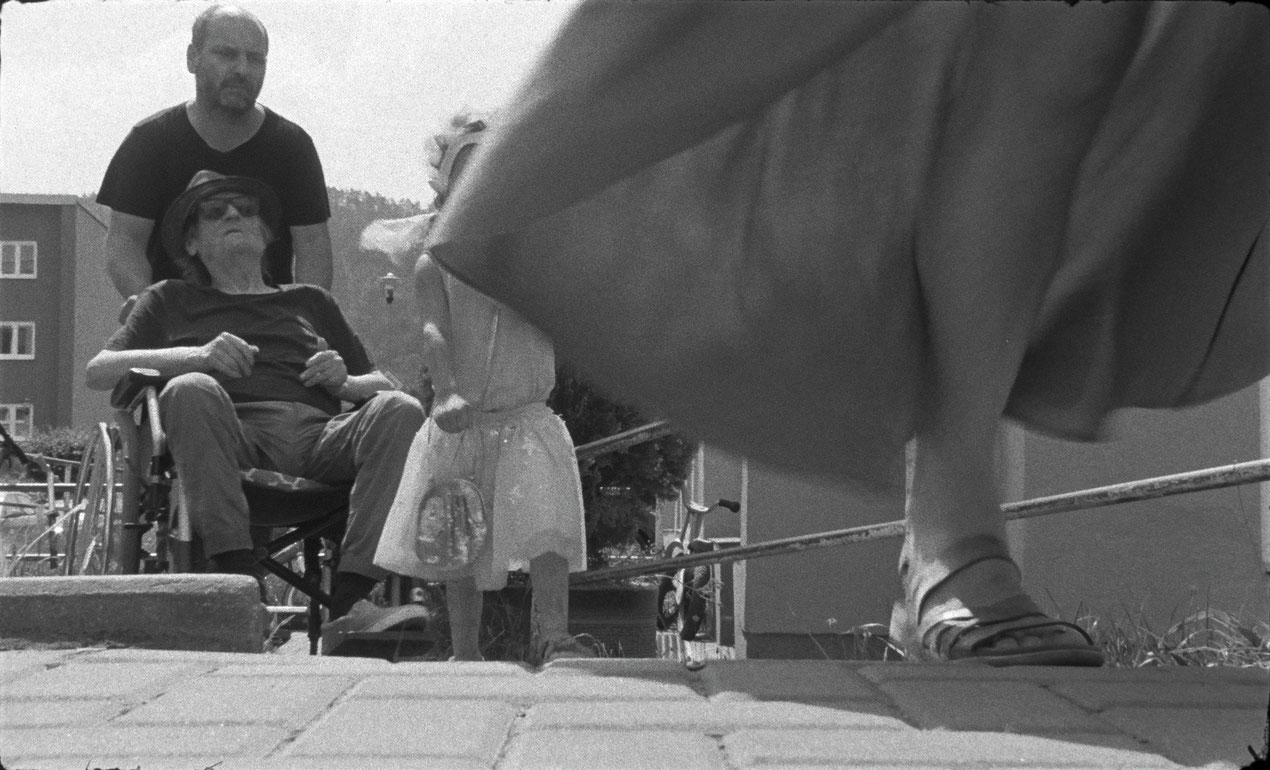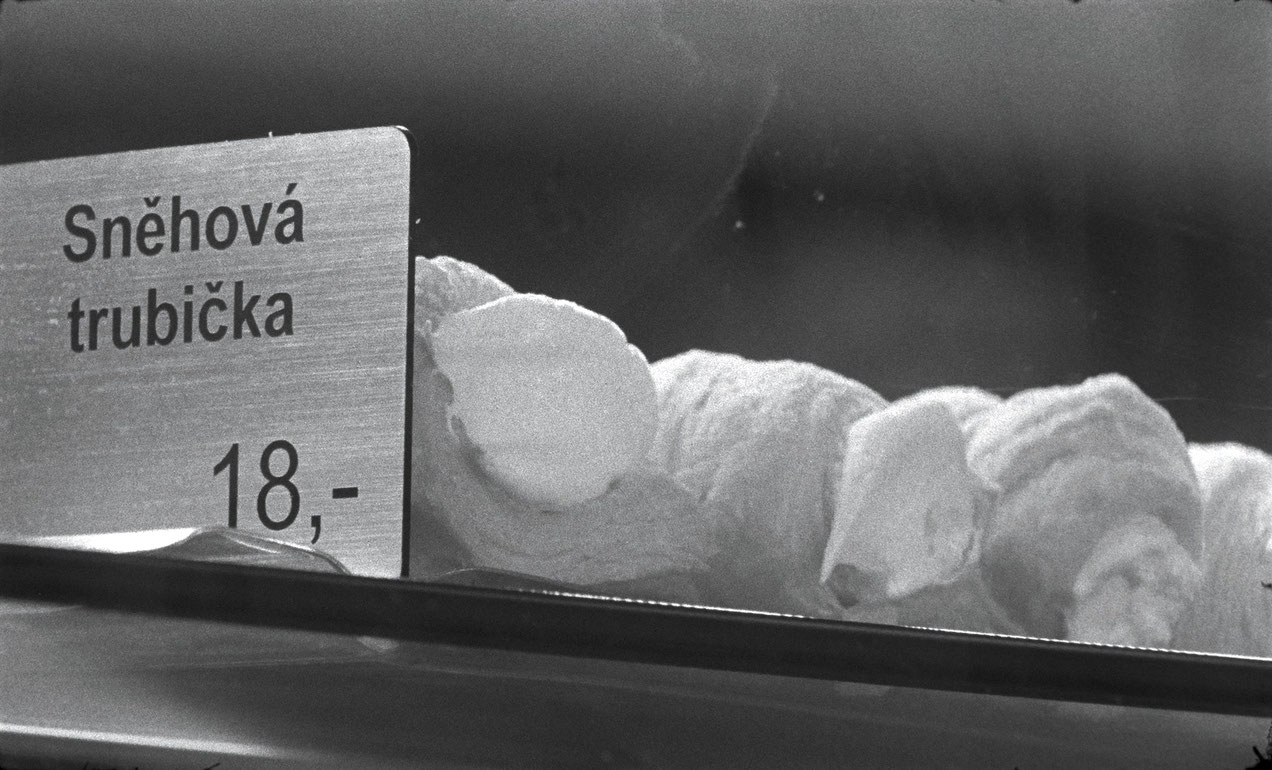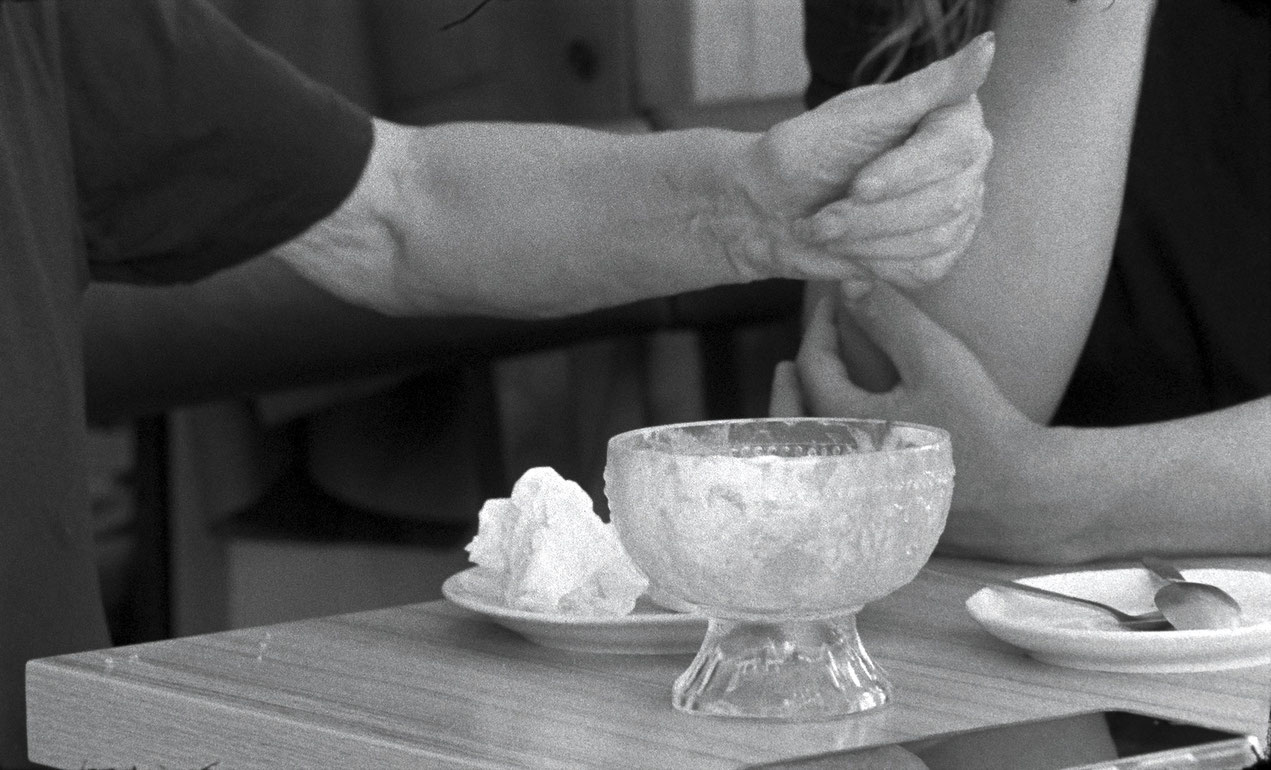Pastry Friday
A horizontal, box-shaped building in the midst of a large housing estate with concrete steps and metal rails, portable toilets, and construction noise. Quite an inhospitable site in southern Moravia, which nonetheless boasts a point of longing: it is Friday, and both young and old set out to take their place at the five tables of this low-rise building with broad window façade. The glass display case holds enticing cream cakes and pastries from the former monarchy with resounding names like Indián, Mandarinkový, and Cikérová špice. The children order fizzy soft drinks with straws, the older ones enjoy silently or swipe across electronic devices. No one speaks.
It is not the first time that Jacques Tati comes to mind in a film by Josef Dabernig. Both like to appear in front of the camera in their quiet humor, both let non-sites and “nowheres” become the main actors and mistrust the spoken word; the language of the objects is eloquent enough. All that counts is the world of sounds as sketched out by Michael Palm with a pneumatic hammer and the banging of a wooden spoon in a pastry bowl, the occasional meaningful nod, buzz of video games, and striding through the game room. Scooters and prams have to wait on the sidewalk, the reality from out on the street is suspended—yet enters again via the distant sounds of traffic and excavators. An atmosphere of waiting, of sweet boredom runs throughout the film. But it is no lazy Sunday, it’s “Pastry Friday,” the last day of the working week when quitting time comes early. Loosely based on The Cure: I don't care if Monday’s blue / Tuesday’s grey and Wednesday, too / Thursday, I don’t care about you / It’s Friday … or quite simply: on Friday, past 1 p.m., everyone does their own thing. Excerpt from post-dramatic daily life in dramatic times.
(Regina Schlagnitweit)
Translation: Lisa Rosenblatt
Pastry Friday
2022
Austria
12 min



